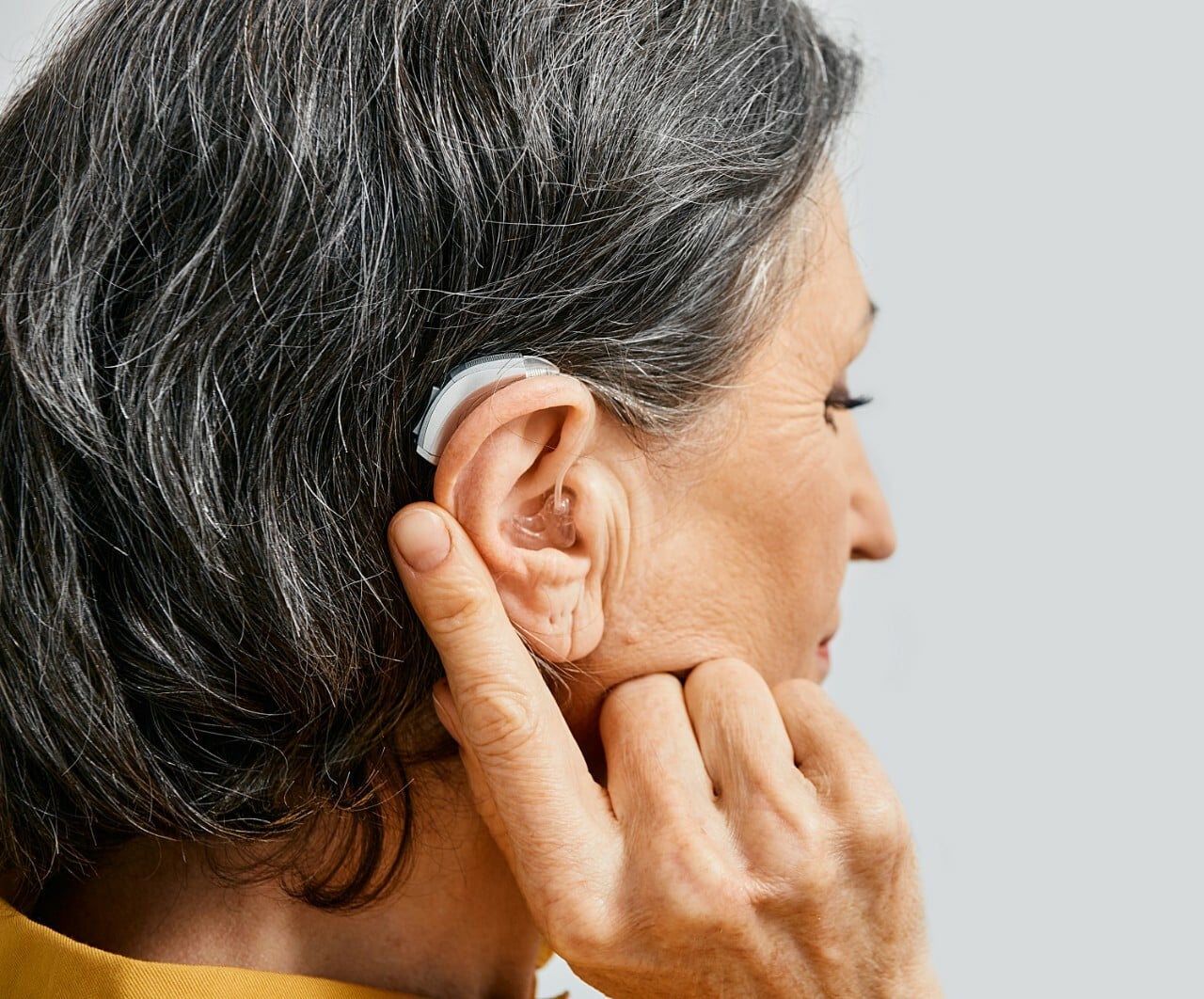That lump-in-the-throat feeling can show up out of nowhere—tight, persistent, and impossible to ignore. It…

3 Signs You Need to See an ENT for Acid Reflux
When you feel a constant burning in your throat, you most likely understand this as heartburn or acid reflux and reach for a bottle of antacids. However, if your symptoms happen very often, then you may have one of two conditions: gastroesophageal reflux disease (GERD) or laryngopharyngeal reflux (LPR). Either condition can be concerning, but what kind of doctor should you see to treat your symptoms?
In this article, we will discuss the difference between the symptoms of GERD and LPR and three signs you should see an ENT to help you manage the condition.
GERD vs. LPR: Understanding Types of Reflux
What are the symptoms of GERD?
You are most likely familiar with the most common symptom of GERD, which is heartburn or a burning sensation in the chest or esophagus, often combined with a small amount of regurgitation in the throat or mouth. However, GERD can also have several other symptoms you may not know about.
Here are some other symptoms to look out for with GERD:
- Chest pain
- Difficulty swallowing
- Sore throat
- Shortness of breath
- Increased saliva
If you suspect you have or are diagnosed with GERD, it’s best to see a gastroenterologist. They can perform tests like pH monitoring, which checks how much stomach acid is making its way into the throat and how well the acid recedes into the stomach.
They may also recommend surgical interventions if conservative measures are not enough, such as fundoplication or LINX device placement.
What is LPR?
While a gastroenterologist can help you with the aspects of GERD that deal with your lower GI tract, an ENT specializes in the effects GERD has on your throat and voice box.
Laryngopharyngeal Reflux (LPR), which often occurs with GERD, affects these areas and can cause a lot of issues if left untreated. With LPR, stomach acid irritates the throat, vocal cords, and nasal passages, resulting in possible voice problems, sinus drainage, and issues with coughing or throat clearing.
Many refer to LPR as “silent reflux” because many people with LPR don’t experience heartburn. This is because the laryngeal area, the area in the neck above the windpipe and in front of the esophagus, is much more sensitive to stomach acid than the esophagus.
The 3 Important Reasons to See an ENT for Acid Reflux or LPR
Many people with reflux issues think they should only see a gastroenterologist, a doctor who specializes in the organs of the digestive system. While a GI doctor can certainly help you with GERD, you may also need the help of an ENT if the condition affects your throat and voice.
Let’s look at the three main reasons you should see an ENT when you experience acid reflux.
1. Diagnose Laryngopharyngeal Reflux (LPR) Symptoms
LPR causes issues in the throat and voicebox that GI doctors are not equipped to handle as well as ENTs, who specialize in disorders of the throat. If you experience any of these symptoms, with or without heartburn, it’s important to add an ENT to your care team:
- Sore throat
- Hoarseness
- The sensation of a lump in the throat
- The need to clear the throat
- The sensation of mucus sticking in the throat, and/or post-nasal drip
- Chronic (long-term) cough
- Wheezing and asthma-like symptoms
- Difficulty swallowing
- Red, swollen, or irritated larynx (voice box)
An ENT can evaluate and treat these symptoms effectively.
2. Recommend Ideal Treatment Options Specifically for LPR
GERD and LPR share many interventions and treatments, including lifestyle changes and prescription medications like proton pump inhibitors (PPIs), which reduce the amount of acid your stomach produces. However, ENTs can help you treat and manage symptoms that relate specifically to your throat and upper airway.
Medication for LPR
While both GERD and LPR are treated with PPIs, the dosage, frequency, and duration of your medication may be different for LPR. To effectively treat LPR, you may need to take higher doses of PPI medication for a longer trial period. Symptoms should start to improve after 4-6 weeks.
If you have both conditions, your ENT can work in conjunction with your GI doctor to create an appropriate treatment plan.
Diet Changes
Your ENT may suggest reducing the intake of problem foods. Problematic foods may include:
- Acidic foods & drinks, including citrus fruits
- Garlic
- Caffeine
- Alcohol
- Carbonated beverages
- Mint
- Chocolate
- Fried and high-fat foods
Lifestyle & Behavior Changes
Many LPR symptoms can be alleviated with certain lifestyle changes, such as avoiding eating or lying down less than three hours before bed. We may also recommend eating smaller meals throughout the day instead of three large meals and avoiding excess pressure on the stomach for two hours after eating (e.g. exercising, bending over, etc.)
We understand that finding your specific LPR triggers can be challenging. That’s why we’re here to be your partner in providing support and guidance throughout your healing journey.
3. Prevent LPR Complications
If left untreated, LPR can lead to complications such as frequent infections, chronic voice and throat irritation, and respiratory problems.
Infections & Mucus Buildup
Mucus plays an important role in your body’s ability to fight off infection. As it builds up, it traps bacteria and viruses—but then it must be cleared away. Stomach acid interferes with the body’s ability to clear away the mucus, which can lead to more frequent illnesses.
Voice & Throat Irritation
While irritation may sound like a minor issue, chronic inflammation in your throat can cause serious issues over time and even interfere with your ability to speak or swallow. Stomach acid is incredibly caustic, and can damage your vocal cords—even causing lesions (or growths) to develop over time.
How long does it take for LPR to cause cancer?
Cancer is not a guaranteed outcome of LPR, but long-term inflammation in your throat is a risk factor for cancers of the throat and vocal cords. The longer you leave your symptoms untreated, the more your risk may increase. It’s always best to investigate any unusual symptoms!
Respiratory Problems
When acid reaches your upper throat, it can enter your windpipe and irritate your lungs. It’s especially common for people with LPR to breathe in acid particles in their sleep. When you inhale these acid particles, you may develop bronchial inflammation, bronchitis, and other infections.
What To Do If You Experience Persistent Acid Reflux
Always keep track of your symptoms and take note of any changes in your ability to swallow or your voice. If you feel like food is often getting stuck or you are throwing up, you should start by visiting a GI. If you experience chronic sore throat, wheezing, hoarseness, or other symptoms of LPR, visit ExcelENT of Alabama for an evaluation. We are happy to be a meaningful part of your healthcare team, working with you to achieve long-term wellness.
Discover how the team at ExcelENT of Alabama can help manage laryngopharyngeal reflux in Birmingham
If you are experiencing swallowing or vocal issues that may be caused by LPR, don’t put off making an appointment with ExcelENT’s Speech-Language Pathologist Amy Pittman. Amy will work with Dr. Christopher Davis to diagnose your issue and tailor a treatment plan for your issue in no time. Schedule an appointment online, or call to discuss coming in at a time that’s best for you: 205-651-8764.


